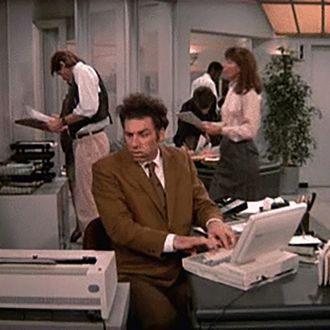
A good chunk of the benefit of arriving early to the office or leaving it conspicuously late is the glorious smugness it earns you. Same goes for complaining afterward about the long hours logged, or the weekend afternoons sacrificed. Hard work is a fine and, indeed, often necessary thing, and yet psychology writer Oliver Burkeman argues that many people tend to overvalue it when compared to what really matters — that is, getting the important stuff done, and getting it done well.
In a piece at 99U, Burkeman highlights some research that suggests that people — well, Americans, anyway — may overappreciate evidence of effort put in, perhaps even more so than the outcome it yields. One Harvard Business School study, for example, found that people prefer it when flight search engines offer little messages indicating that the site is working hard to find them the best deals — even if those searches take longer than sites that offer the same deals, but without similar messages. This is a version of something psychologists call the “labor illusion,” which, as Burkeman explains, means that although “we might say we’re focused only on whether [someone] did the job quickly and well … really we want to feel they wore themselves out for us.”
And the ubiquity of complaining about long days at the office suggests that people tend to apply this idea to themselves, too, giving more weight to time spent laboring than actual accomplishments. Because one, of course, does not necessarily lead to another: Consider the recent study, for example, that found office workers routinely fib about working 80-hour weeks in order to get ahead at work. Their bosses mostly fell for it, suggesting that they couldn’t tell the difference in terms of what their subordinates actually got done.
If quality creative work is something you’re concerned with, Burkeman suggests working intensely for a shorter amount of time rather than dragging out the day, wasting time organizing your inbox and the like. (And you’re most likely to have the requisite brainpower for this during the first two hours of your day, by the way.) Overall, judging the success of your day by your level of exhaustion at the end of it is a wrongheaded way of looking at things. As Burkeman writes, “A few hours of absorption in it can be actively energizing — so if you’re judging your output by your tiredness, you’re sure to be misled.”




